Alex Gray - Never Somewhere Else
Здесь есть возможность читать онлайн «Alex Gray - Never Somewhere Else» весь текст электронной книги совершенно бесплатно (целиком полную версию без сокращений). В некоторых случаях можно слушать аудио, скачать через торрент в формате fb2 и присутствует краткое содержание. Год выпуска: 2001, ISBN: 2001, Издательство: Howes, Жанр: Триллер, на английском языке. Описание произведения, (предисловие) а так же отзывы посетителей доступны на портале библиотеки ЛибКат.
- Название:Never Somewhere Else
- Автор:
- Издательство:Howes
- Жанр:
- Год:2001
- ISBN:9781841976082
- Рейтинг книги:5 / 5. Голосов: 1
-
Избранное:Добавить в избранное
- Отзывы:
-
Ваша оценка:
- 100
- 1
- 2
- 3
- 4
- 5
Never Somewhere Else: краткое содержание, описание и аннотация
Предлагаем к чтению аннотацию, описание, краткое содержание или предисловие (зависит от того, что написал сам автор книги «Never Somewhere Else»). Если вы не нашли необходимую информацию о книге — напишите в комментариях, мы постараемся отыскать её.
Never Somewhere Else — читать онлайн бесплатно полную книгу (весь текст) целиком
Ниже представлен текст книги, разбитый по страницам. Система сохранения места последней прочитанной страницы, позволяет с удобством читать онлайн бесплатно книгу «Never Somewhere Else», без необходимости каждый раз заново искать на чём Вы остановились. Поставьте закладку, и сможете в любой момент перейти на страницу, на которой закончили чтение.
Интервал:
Закладка:
Solomon was aware of the silence. From where he stood, the city’s roar of traffic was muffled by the thick wall and there was not a soul in sight. The killer must have stood here, his victim at his feet, ready to transport this latest corpse by ambulance to St Mungo’s Park. The lane had a no parking sign at its entrance, Solomon had noted. Mon-Fri 8.15-5.15 p.m. Any vehicle outwith these hours would be legally parked and hardly noticed. Had he stopped in the ambulance and beckoned Lucy, the way he had with Alison Girdley? But Lucy knew this ambulance; she had been the one charged with its purchase in the first place. So. She knew her killer, maybe even liked him, and would wait patiently while he drew alongside her and called out her name. Or was he parked there already? One way or the other Solomon felt that there had been an implicit trust on the part of the girl. The killer had beguiled her somehow or else she was unaware of her danger. Why? To answer that, he must find out much, much more about Lucy Haining and every person she had known in her student life. It was not only a murderer he was looking to profile.
The lane took Solomon back out to the street that ran downhill to the city centre. Here Garnethill overlooked the city from all points. To the west, the white spires of Trinity speared the sky. Beyond lay the university and Solomon’s own small patch of belonging. Down to the north the buildings faded into misty greys, the street lights beginning to cast a weak glow. South lay the river. As Solomon walked back along Scott Street, the Art School appeared like a safe canyon against the wilderness outside. Huddled into the steep incline was the side door to the Centre for Contemporary Arts. Even as he glanced that way a couple emerged from the building. The CCA was open late every evening, he knew; sometimes it hosted a club night but mostly it was simply a hang-out for students, art students in particular. Solomon wondered if the centre had been investigated in the course of Lorimer’s lengthy inquiries. He made a mental note to ask — tactfully.
Straight ahead the river Clyde lay hidden, caught between the amalgam of buildings sprawled on either bank. Traffic criss-crossed the intersecting streets like a never-ending game in an amusement arcade. Push in a coin, see the buses ride the grid. Buses, taxis, post office vans, cars, ambulances … Their dim roar was like an animal breathing in its sleep, unseen and languorous in daylight but lurking by every watering hole come sundown.
The ambulance would have slipped into the main stream of night-time traffic then crossed through the gates of St Mungo’s Park. On impulse Solomon hurried down the last few yards to Sauchiehall Street and hailed an approaching black taxi.
It was that half-light of evening that motorists so dislike when the taxi drew up at the park gates, the evergreen bushes looking burnt orange in the glare of headlights. The park was no longer manned, though infrared detectors and closed circuit television cameras remained discreetly in place. But the gate was firmly shut. Solomon looked back at the retreating taxi that had swung an effortless u-turn and was now heading towards the city. The journey had taken sixteen minutes. What had been going through the killer’s mind during that journey? He had already made the dry run with poor little Donna Henderson, so he knew what to do here. But how could he be sure that a police presence would not disturb his activities? Even more so with Sharon Millen, he thought. Unless … Could the killer have had information about police movements? Or had he simply strolled around to check whether it was safe to repeat his original performance? Any cold-blooded murderer would seek to cover his tracks, but someone in the police force would have insider knowledge that could work to his advantage.
The photofit of the killer showed a trim, clean-cut individual. They had even made a joke about him looking like a copper. Yet so many men of this age group had that cropped hairstyle; defiant punk or a convenient attempt to disguise a receding hairline.
Solomon leaned against the park railings, forcing himself to consider this possibility. A sudden vision of Lorimer’s steely blue glare flashed across his mind. The Chief Inspector would not take kindly to this idea at all. Oh, no, indeed.
CHAPTER 18
It was almost too easy once he’d stopped to think about it. Martin had missed the black-bearded psychologist, who had not been at the School of Art after all, it seemed. The journalist had hung around watching the students come and go for a good half hour. He’d watched the entrance like a hawk, waiting to see whether Brightman would emerge, but the only figure he had recognised was Chris, the art student who’d bought that print at Davey’s exhibition. Martin had smiled as he passed him by on the street but the guy had just looked right through him as if he wasn’t there and walked on. Only minutes later a janitor from the School’s design workshop had strolled up and asked a few bland questions. The man’s meaningful look had almost encouraged Martin to whip out his Press card but, preferring anonymity, Martin had feigned the air of a tourist overawed by the sight of Charles Rennie Mackintosh’s great work. The janitor’s look had remained sceptical, though, so Martin had taken himself off, cursing the time wasted. Later, however, the way to weasel information out of the psychologist had come to him in a flash of brilliance.
Martin chuckled to himself as he slotted the cassette tape into his machine. Diane’s sexy voice made the hairs on his neck tingle and there was a growing warmth in his groin. A small involuntary sigh of pleasure escaped him as the thought of her flickered across his mind.
The preliminary courtesies of the interview were coming to a close and Diane’s firmness of tone signalled the beginning of more interesting dialogue.
‘Tell me, Dr Brightman, what sort of response does psychological profiling receive from the police?’
‘In general, you mean?’
‘Well, I know it’s used a lot in the United States, but is it well thought of here in Britain?’
There was a pause in the conversation and Martin could imagine Diane, legs crossed, smiling in encouragement at Dr Brightman, researcher into what made murderers tick.
‘Yes and no,’ came the reply. Martin expected Diane to pounce on that prevarication but she kept a measured silence. ‘There have been cases in England where the techniques of criminal profiling have been used to great effect. The results are often surprising to the investigating officers when regular methods have drawn a blank.’
‘Do you feel that regular methods, as you call them, are outdated, then?’
‘Oh, no.’ His rejoinder was swift this time. ‘I have great respect for the methods used by the police. In many ways we follow similar lines of thought. We do not only ask why something like a murder took place but we try to stand in the murderer’s shoes. Like Father Brown.’
‘Pardon me?’
‘G.K. Chesterton.’ Martin and Solomon replied together, and Martin grinned. He must remember to tease Diane about that one. But Solomon was enlarging for her benefit. ‘The Father Brown stories. He was, in his way, the classic profiler. He put himself in the murderer’s shoes, so to speak: tried to think as he would. Clever, really. A priest, you know. The confessional and all that.’ The psychologist’s voice drifted away as if his thoughts had taken wing elsewhere.
‘So the police are beginning to use psychological profiling here in Scotland?’
Diane was clever, thought Martin. Brightman had not actually mentioned Scotland yet.
‘Ah, yes. It is not only confined to their counterparts south of the border. Oh my, no.’
‘And the Scottish police value your services?’
Читать дальшеИнтервал:
Закладка:
Похожие книги на «Never Somewhere Else»
Представляем Вашему вниманию похожие книги на «Never Somewhere Else» списком для выбора. Мы отобрали схожую по названию и смыслу литературу в надежде предоставить читателям больше вариантов отыскать новые, интересные, ещё непрочитанные произведения.
Обсуждение, отзывы о книге «Never Somewhere Else» и просто собственные мнения читателей. Оставьте ваши комментарии, напишите, что Вы думаете о произведении, его смысле или главных героях. Укажите что конкретно понравилось, а что нет, и почему Вы так считаете.
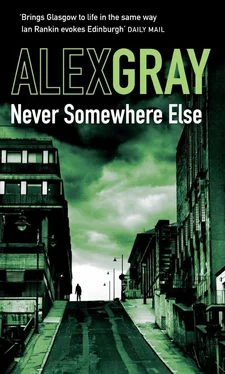
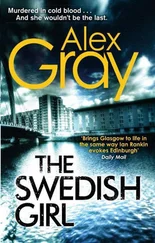
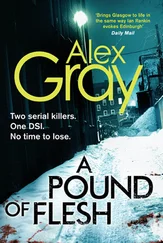
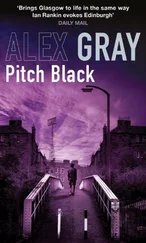
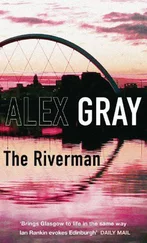
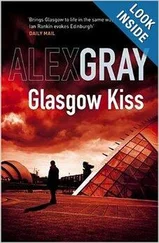
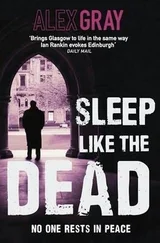

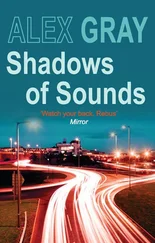
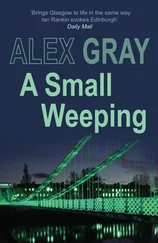

![Alesya-Grey - Оборотень [СИ]](/books/428392/alesya-grey-oboroten-si-thumb.webp)